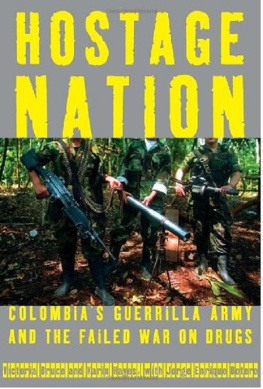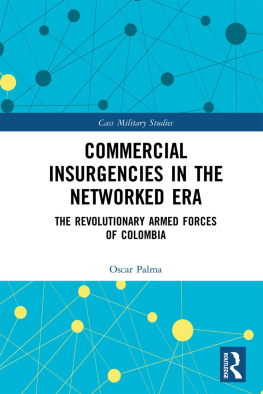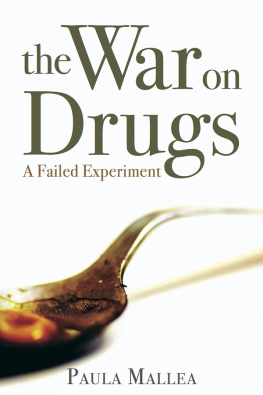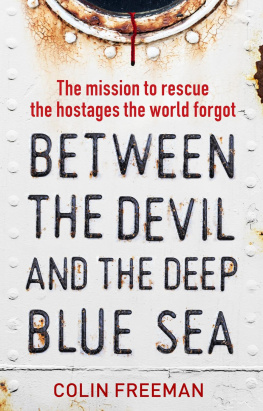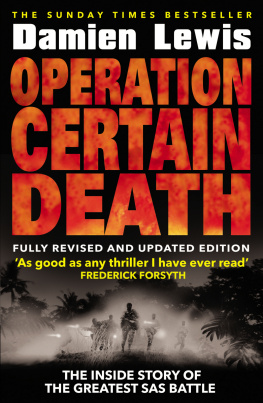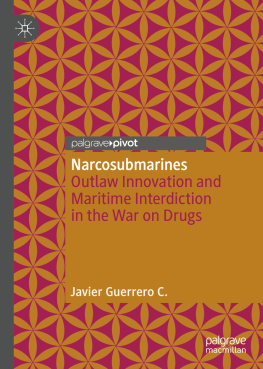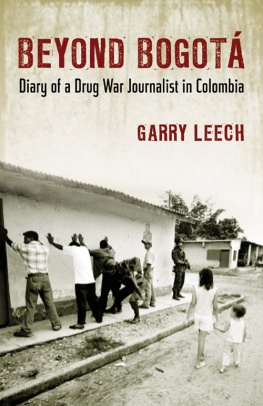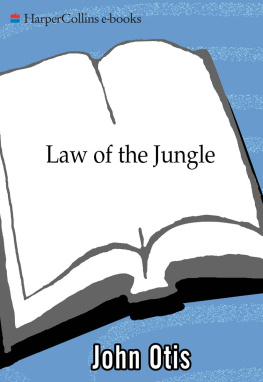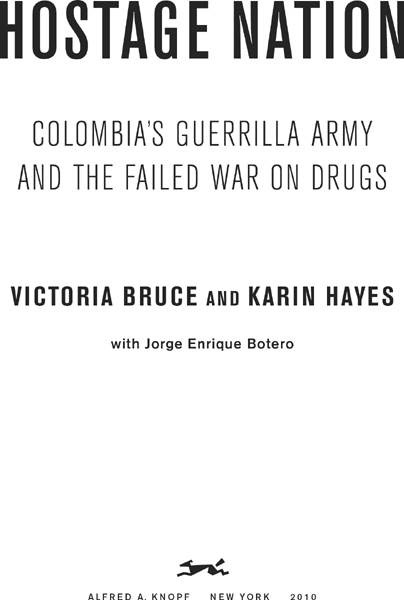To all the journalists who have died and to those who continue to risk
their lives covering the violence in Colombia and the war on drugs.

PROLOGUE
In February 2003, a short news clip of a plane crash in the Colombian jungle grabbed our attention. We had spent the previous year making our first documentary film, The Kidnapping of Ingrid Betancourt. It was assumed that three of the American crew members survived the crash and had been captured by Fuerzas Armadas Revolucionarias de Colombia (FARC) guerrillas, the same group that had held Ingrid for over a year. A book on Ingrid and the American captives seemed like a logical journalistic extension after the documentary. At the time, we had only two sources: the mother of hostage Marc Gonsalves, who was the only family member who would speak to the press, and Gary Noesner, an FBI hostage-negotiation expert who had recently gone corporate. Wed had the good fortune to interview Gary several times in the past, so the coincidence that Garys first case with his new employer turned out to be that of the three kidnapped Americans seemed like great serendipity.
Six months after the Americans had been kidnapped, a surprising symbiotic relationship began when we delivered proof to Garys office in Washington, D.C. that the three Americans were still alive. On the video we carried back from Bogot were interviews of the hostages; these had been shot by our Colombian colleague, Jorge Enrique Botero, who was the only journalist ever to be allowed into FARC hostage camps. At the time, no one in the U.S. government had any knowledge of the hostages whereabouts or even whether they were still alive. Knowing that we were bringing the video, Gary had invited one of the lead FBI investigators in the case, a State Department counterterrorism official, and the vice president of Northrop Grumman, the mens employer. And in what was surely one of the most surreal moments in both of our careers, we opened a laptop and showed them videos of Marc Gonsalves, Thomas Howes, and Keith Stansell pleading for their families not to forget them and begging the U.S. government not to attempt a rescue.
Shortly after, even with the publicity generated by Boteros footage of the men and our documentary film Held Hostage in Colombia, which aired on CBSs 60 Minutes II, the History Channel, and in news reports around the world, there was little interest in the Americans story. As our subjects remained in the jungle, the book, which we had worked on for six months, didnt seem to have either a market or an ending in sight. We shelved the proposal. Over the next few years, we would occasionally pull it out and dust it offchanging titles, reorganizing, and rewritingonly to discover that we still didnt have a book. With no news on the hostage situation and not even the slightest hint of a release, more than half a dozen half-finished proposals gathered dust on our office shelves, got lost in moves, or ended up in the recycled paper pile.
But the story was never far away. The hostages had become an unshakable part of our lives. We were on a first-name basis with Tom, Marc, Keith, and Ingrid. And for Botero, there were dozens more. They worked their way into our thoughts and our daily conversations. In Karins dreams, Ingrid often appeared on the brink of liberation, only to disappear back into the jungle. We empathized with the frustration of the family members, several of whom we spoke to often. We met with senators, congresspeople, members of NGOs, and anyone else we felt could help bring attention to the story or do something to help the three Americans and hundreds of other Colombian hostages. We studied every bit of news about the FARC. We were, by turns, hopeful and fearful for the hostages when Colombian president lvaro Uribe made conciliatory and then aggressive moves toward the guerrillas. For Botero, covering the hostage stories was even more overwhelming than it was for us. He made so many trips into the jungle to try to gain access to the hostages that at times we feared he would collapse from exhaustion. What we all realized as the years went by was that there was little as journalists or filmmakers that we could do. All three of us attempted to escape the emotional grip of the difficult and consuming subject by taking on new projects, far away from the jungle prison camps.
More than a year into our hiatus from the hostage story, the three of us reunited on the topic when the trial of FARC commander Simn Trinidad took place in U.S. district court. It was during the fall of 2006 that we realized the scope of this book was so much greater than the story of the American hostages. Our book was the story of a four-decades-old guerrilla movement that grew to include the most wealthy and lethal insurgent army in the world. The FARCs extraordinary rise was linked to one of the most ill-fated policies of the United States in the last half century. The disastrous multibillion-dollar plan to wage war on an herbaceous shrub, Erythroxylum coca, lured Tom, Marc, and Keith into the war on drugs and led directly to their five-and-a-half-year internment in FARC prison camps.
Over the years, Botero had been an essential source, granting us hours and hours of his time, deliberately unfolding the history and culture of his complicated country. During those long conversations, he guided us into the mysterious world of the FARC with stories of his travels into the mountains and the jungle. We heard how hed raised the ire of the Colombian government, how hed infuriated the top FARC commanders, and how the mother of his children had been a victim of his countrys violence. We realized that his contributions to the book were invaluable, and we invited him to coauthor it. The three of us worked together across continents for the next two years, until summer 2008, when Ingrid and the Americans were rescued by the Colombian military. To us, this seemed like a logical place to end a story wed been covering for six and a half years. Botero, however, was packing for another trip to the jungle. We asked him what motivated him, what made him continue following the story of the remaining hostages, and what made him continue covering his countrys endless civil war. It was then that we realized Botero was not only our most integral source and coauthor; he was a true protagonist, the person who fastened the book together.
It is admittedly difficult to craft a book with three colleagues in two languages over the course of six years and hundreds of hours. We spent a great deal of time flushing out the political complexities of Colombia and its relationship to the United States, and we worked diligently to maintain journalistic balance when our coauthor became part of the story. During the weaving of this tale, there were many events and challenges that would have derailed most other projects. Logistical, emotional, and political differences among us ping-ponged across continents via e-mail, video chats, and occasional meetings in D.C., Bogot, New York, and Miami. Together, we hammered out the ideas behind this story. Our work was punctuated by fights about style, translations, and edits. In the end, we always remained dedicated to what we believe is an incredibly important story, and a book that could not have come about in any other way.
Victoria Bruce and Karin Hayes

